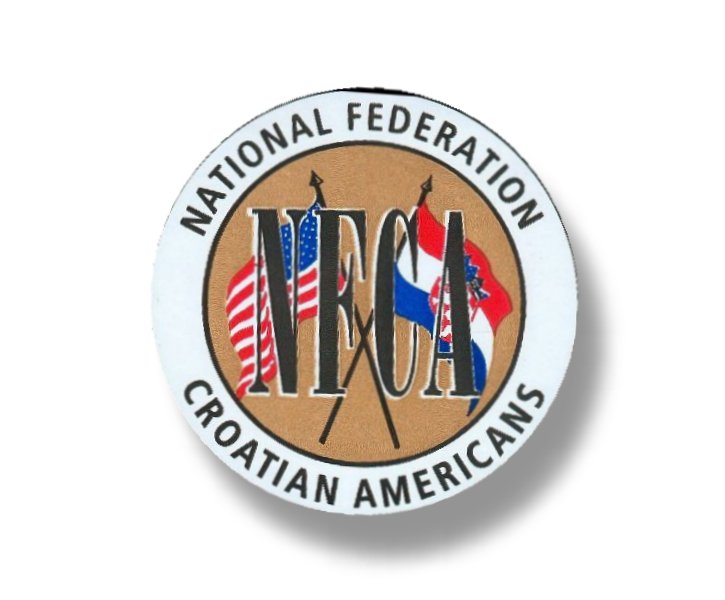(H) CAPITOL HILL BRIEFING CONCERNING STATUS OF CROATS IN VOJVODINA , July 30, 2004

NATIONAL FEDERATION OF CROATIAN AMERICANS TESTIFIES AT CAPITOL HILL BRIEFING CONCERNING STATUS OF CROATS IN VOJVODINA
(Washington, D.C., July 15, 2004). The National Federation of Croatian Americans (NFCA) presented a statement at a briefing on Capitol Hill on July 14, 2004 concerning the status of Croats in Vojvodina, a province of Serbia. The briefing was co-sponsored by the House of Representatives' Human Rights Caucus and Hungarian American Caucus.
In addition to the NFCA, presentations at the briefing were given by Mr. Charles English, the Director of South Central Europe at the U.S. State Department, Mr. Ivan Vujacic, the Ambassador of Serbia and Montenegro to the United States, Mr. Nenad Canak, President of the Vojvodina Parliment, and Mr. Sandor Nagy, President of the Center for Hungarian American Congressional Relations. Treasurer Zvonko Labas presented the statement on the NFCA's behalf. Mr. Labas noted that the centuries' old Croat community in Vojvodina has been subjected to relentless Serbianization pressures. This can best be seen by the drop in the number of Croats in the Province from approximately 138,000 in 1961 to less than 75,000 in 1991.
Mr. Labas noted that the following the collapse of Yugoslavia, the defenseless Croats of Vojvodina suffered as a result of a number of ethnic cleansing actions carried out by, among others, indicted war criminal Vojislav Seselj. The most well-known of these attacks occurred in the village of Hrtkovci where approximately 350 Croat families were forced out of their homes in 1992. A further upsurge of violence against Croats in the Province occurred in 1995. The tragic results of these campaigns condoned and encouraged by the Serbian government can be seen in the census figures for 2002 which show that only 56,637 Croats remain in Vojvodina, 25% less than the previous decade. Mr. Labas pointed out that observers have noted that many villages which had previously had Croatian majorities have since become purely or majority Serb villages.
Unfortunately, Croats and other minorities in Vojvodina have recently once again been the victims of renewed attacks coinciding with the recent rise in political fortunes of Seselj's Serbian Radical Party. Mr. Labas listed a number of "incidents" which have occurred since December 2003 alone, including attacks against the Croatian Home in Somobor, the toppling of a bust of Matija Gubec (a 16th century Croatian peasant leader) in the Croatian-populated village of Tavankut, anonymous death threats made to consular authorities of the Republic of Croatia in Subotica and the staff of the Croatian-language weekly Hrvatski rijec, the desecration of Catholic graves in a cemetery in Subotica and in Backa Monostor, and the breaking of windows of the Franciscan monastery in Subotica. Mr. Labas noted that just earlier this month, during the night of July 2-3, 2004, the Catholic cemetery in Somobor was hit, with 20 Hungarian, Croat, and other graves damaged.
Mr. Labas argued that "these incidents are tied to the resurgence of support for the extremist Serbian Radical Party. The SRP unabashedly calls for the creation of a Greater Serbia, at the expense of Croatia and Bosnia and Herzegovina . . . . Since its members cannot conceivably turn their violence against internationally recognized sovereign states, they can only do so against [unarmed] minority groups within their borders." While Mr. Labas noted with approval that the Croats of Vojvodina had recently won the right to educate their children in the Croatian language, he expressed concern that the growth in power of such openly racist parties as the Serbian Radical Party presents a threat to the continued stability of the region and to the "day to day lives of Croats and other minorities living in Vojvodina."
In addition to Mr. Labas, Erik Milman, the NFCA's Director of Development, and Joseph Foley, the NFCA's Government Relations Director, attended the briefing.
Mr. Edward Andrus, the President of the NFCA, commented afterwards that he was very pleased that the NFCA was able to bring to the attention of American elected officials an issue which has been clearly overlooked by many human rights organizations. "The Croats of Vojvodina have been subjected to an unprecedented level of ethnic cleansing in the past decade. Western institutions, agencies, and governments have brought pressure to bear on other players in the region to reverse the effects of ethnic cleansing, and they need to now step-up pressure on Belgrade with respect to Vojvodina. Clearly, this has also become an issue of concern to America's Hungarian community and it should become one of concern to American Slovaks as well, as both their minority counterparts have recently experienced increased harassment in Vojvodina. Hopefully, our contribution in this matter will serve as a catalyst to initiate needed changes in the Province."
The NFCA is a national umbrella organization of Croatian-American groups which collectively have approximately 130,000 members.
For more convention information, please call Joe Foley, Government Relations Director, at 301-294-0937 or Erik Milman, the NFCA's Director of Development, at the NFCA's headquarters in Washington at 202-331-2830 or by email at NFCAhdq@aol.com